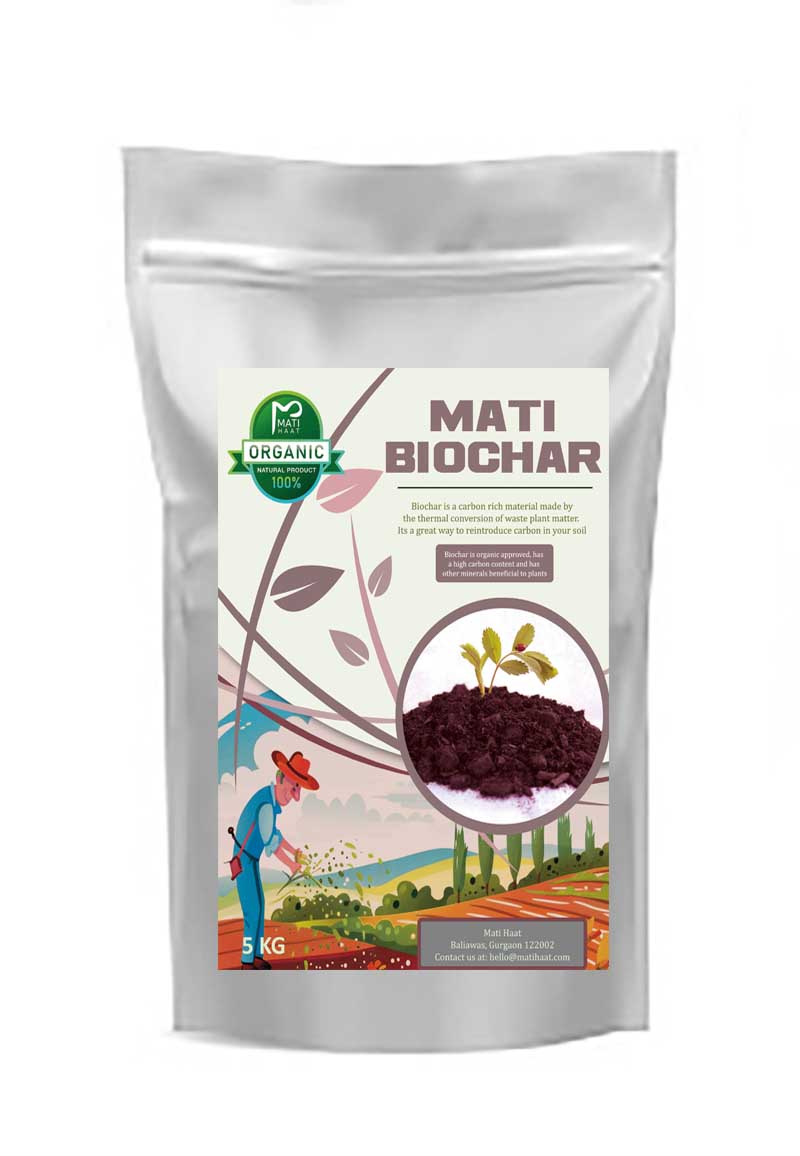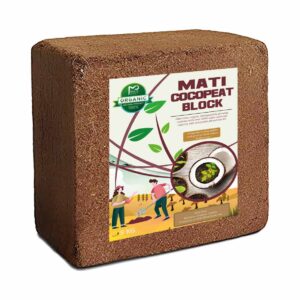No products in the cart.
Amendments, Soil Conditioners
Mati Biochar
Biochar is the perfect method to add organic carbon matter to your soil while also reducing plant waste and adding to carbon sequestration.
₹209.00 – ₹699.00
Biochar is a type of charcoal produced from organic materials through a process called pyrolysis, which involves heating biomass (such as wood, crop residues, or animal manure) in a low-oxygen environment. This process converts the organic matter into a stable form of carbon that can persist in soil for hundreds to thousands of years.
Biochar is known for its porous structure, which provides habitat for microorganisms and helps retain water and nutrients in the soil. When incorporated into soil, biochar can improve soil fertility, increase crop yields, and enhance carbon sequestration, making it an environmentally sustainable soil amendment. Additionally, biochar has the potential to mitigate climate change by storing carbon that would otherwise be released into the atmosphere through decomposition or burning.
Overall, biochar has gained attention for its potential to improve soil health, enhance agricultural productivity, and contribute to climate change mitigation efforts.
| Weight | N/A |
|---|---|
| Dimensions | N/A |
| Size kg | 1, 5 |
| Bulk Density | 8.5 | lb/cu. ft. |
| Organic Carbon | 94.4 | % of total dry mass |
| Hydrogen:Carbon (H:C) | 0.17 | Molar ratio |
| Total Ash | 2.3 | % of total dry mass |
Based on 0 reviews
Be the first to review “Mati Biochar”
You may also like…
-
Amendments
Mati Vermiculite 1Kg
Vermiculite is a hydrated laminar mineral that expands when heated. It is mined from naturally occurring deposits and processed into lightweight, moisture-retaining flakes or granules.
Vermiculite has a high water-holding capacity and is often used to improve moisture retention in soils and growing media. It is widely employed in horticulture, seed germination, insulation, and as a component in soil amendments.
SKU: MH004 -
Cocopeat, Soils
Mati Cocopeat Block 4-5 kg
Sourced from the fibrous husk of coconuts, Mati Cocopeat is a 100% Organic and a renewable resource that has excellent aeration properties, prevents soil compaction and increases the carbon content of the soil. Should be used together with soil and other amendments except in the case of seed germination where it is recommended to use on its own.
SKU: MH006 -









There are no reviews yet.